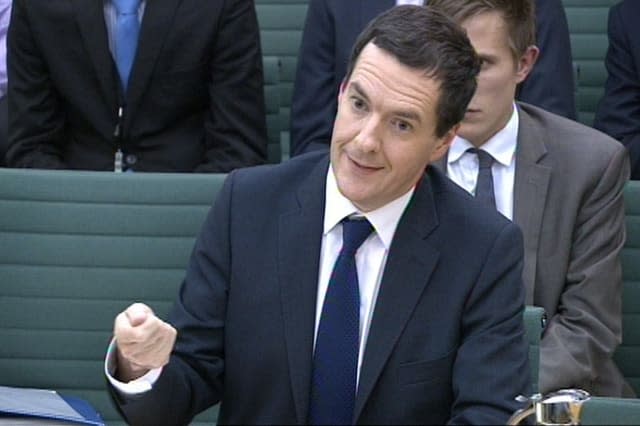Surplus to fund income tax cut

Chancellor George Osborne has confirmed that the £23 billion surplus forecast for the end of the decade could be used to fund the £7 billion income tax cut promised by David Cameron.
The Prime Minister previously pledged to raise the personal threshold to £12,500 and the threshold for the 40p rate to £50,000 without saying how it would be paid for.
Today Mr Osborne said he "completely" agreed with former education secretary Michael Gove, who claimed earlier this week that the money could come from the surplus predicted by the Office for Budget Responsibility.
In comments which appeared to suggest that the cuts may not come until the final year of the next Parliament, Tory Chief Whip Mr Gove told BBC2's Newsnight that the OBR was predicting a surplus of £23 billion by 2019/20 under Tory plans, adding: "Within that, we can afford to have tax cuts. If you've got £23 billion spare, left over, then you can take £7 billion out of that for tax cuts."
Speaking to business leaders in Manchester as part of his tour of the north-west with Mr Cameron, the Chancellor said: "What Michael Gove is saying - and I completely agree with him - is the spending plans we have set out show you can deliver a surplus.
"I think it is perfectly consistent to have spending plans that deliver the surplus, that reduce the national debt and to deliver those tax cuts that we have promised the British people because they are all part of the long-term economic plan.
"The forecast surplus is £23 billion by the end of this decade. Those spending plans deliver economic security and by having a surplus you can not only eliminate your deficit but you can start to get your debt down.
"Our national debt is too high. It went up a lot in the economic crisis because we had a high deficit and we kept adding to that debt. That leaves the UK exposed to the next shock."
In that context he said it was a "sensible approach" to put economic security and stability first as without that none of the economic plan would work.
But he added: "Consistent with that and at the same time we can also deliver tax cuts for working people. This is not a bolt-on to our plan. This is also central to our plans so that in this country you are incentivised to work, you are rewarded for your hard work.
"In this Parliament we have managed to achieve £9 billion of income tax reductions by increasing the tax-free personal allowance whilst cutting the deficit in half and delivering economic stability again to our country.
"We have shown you can do it, we have got the spending plans that show you can manage the public finances and deliver that surplus.
"We must learn the lesson that you should fix the roof when the sun is shining. The economy will, by the latter part of this decade, have been growing for seven or eight years. If you are not using that period to be paying down your debts, when are you paying down your debts?"
This was in contrast, he went on, to Labour who he said did not want to reduce the national debt.
He added: "They say they will run a deficit forever. I say that is repeating the mistakes of the past, that is borrowing against our country's future and our children's future. It leaves our country exposed, as it was when the financial crash happened."
Read more on AOL Money
Why we should merge income tax and NI
Poor 'pay 47% of income in tax'




